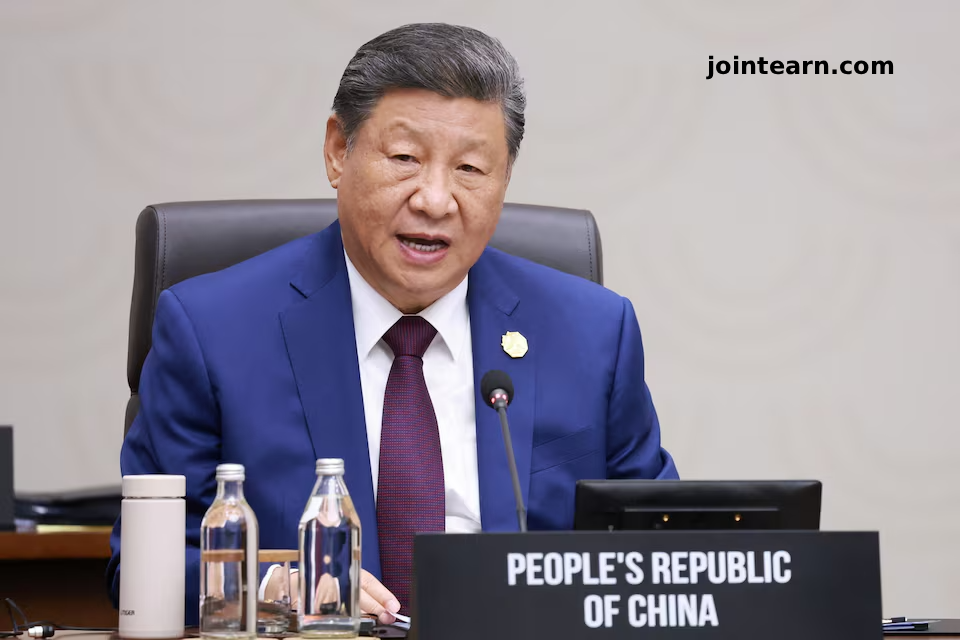
BEIJING / GYEONGJU, November 1, 2025 – Chinese President Xi Jinping took center stage at the Asia-Pacific Economic Cooperation (APEC) summit in Gyeongju, South Korea, advocating for a global body to govern artificial intelligence (AI) and positioning China as an alternative to the United States in trade and technology cooperation.
Xi’s comments marked the first major public discussion by the Chinese leader on the initiative unveiled earlier this year. The proposal comes as the U.S. continues to reject efforts to regulate AI through international organizations, highlighting growing geopolitical divergence in AI governance.
Proposal for a World Artificial Intelligence Cooperation Organization
President Xi proposed the establishment of a World Artificial Intelligence Cooperation Organization, aimed at setting global governance standards for AI and fostering international collaboration. He emphasized that AI should serve as a “public good for the international community,” ensuring equitable benefits across nations and regions.
“Artificial intelligence is of great significance for future development and should be made for the benefit of people in all countries and regions,” Xi said, according to remarks published by Xinhua, China’s state news agency.
Chinese officials suggested that the organization could be based in Shanghai, one of China’s major commercial and financial hubs, signaling the country’s ambition to lead in AI standards and multilateral technological cooperation.
Trade and Technology Context
During the summit, U.S. President Donald Trump did not attend, returning directly to Washington after a bilateral meeting with Xi. Their discussions had produced a one-year agreement to partially roll back trade and technology restrictions, reducing tensions between the world’s two largest economies.
In Trump’s absence, Xi seized the opportunity to promote China as a champion of multilateral cooperation, advocating for its own approach to trade, AI, and economic development within the APEC framework.
AI and Technological Sovereignty
The push for a global AI governance body coincides with China’s efforts to assert algorithmic sovereignty. While California-based Nvidia remains central to the global AI boom, China-based AI developer DeepSeek has introduced more affordable AI models, adopted by Beijing to reduce dependency on foreign technology.
Xi also urged APEC members to promote the “free circulation” of green technologies, including batteries, solar panels, and other clean energy solutions, industries in which China holds a leading position.
APEC Declarations and 2026 Outlook
At the conclusion of the summit, APEC members approved a joint declaration and agreements addressing AI regulation and the challenges of aging populations. China is slated to host the 2026 APEC summit in Shenzhen, a city that has grown from a small fishing village in the 1980s to a global hub for manufacturing, robotics, and electric vehicles.
APEC, a consultative forum of 21 nations representing roughly half of global trade, provides China with a platform to project leadership in technology and economic policy across the Asia-Pacific region.
Key Takeaways
- Xi Jinping proposes World AI Cooperation Organization to govern AI globally.
- Initiative positions China as an alternative to the U.S. in AI and trade standards.
- DeepSeek and domestic AI models underscore China’s push for algorithmic sovereignty.
- APEC 2025 members approve AI and aging population agreements; China to host 2026 summit in Shenzhen.
- Xi promotes green technology circulation, leveraging China’s industrial dominance.


Leave a Reply